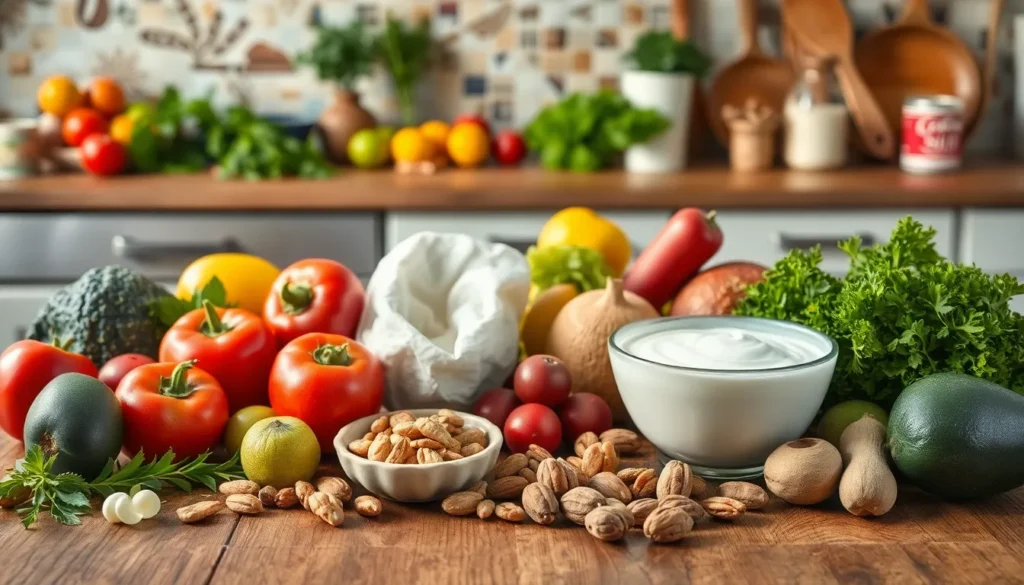Table of Contents
ToggleIn a world where every drop of water counts, smart irrigation scheduling is the hero we didn’t know we needed. Imagine a system that knows just how thirsty your plants are—like a personal butler for your garden, minus the bow tie. With the right tech, you can save water, money, and your sanity while giving your plants the VIP treatment they deserve.
Overview of Smart Irrigation Scheduling
Smart irrigation scheduling optimizes water use for gardens and landscapes. This system employs technology to assess plant water needs accurately. Instead of relying solely on traditional methods, smart irrigation integrates sensors and climate data to provide timely recommendations. Precision in watering ensures plants receive just the right amount, reducing waste.
Systems designed for smart irrigation often utilize soil moisture sensors. These devices continually monitor the water levels in the soil, allowing for real-time adjustments. Weather prediction data also plays a crucial role. By analyzing forecast information, these systems only water when necessary, conserving resources.
Many gardeners find that smart irrigation tools lead to significant cost savings. Reports indicate reductions in water bills of up to 50%. Less frequent watering not only conserves water but also promotes healthier plant growth. Plants receive optimal hydration, enhancing their resilience and overall well-being.
Various smart irrigation systems offer customizable settings. Users can schedule watering times, duration, and frequency based on specific plant requirements. Such flexibility allows adaptation to various cultivation conditions and seasonal changes.
Implementing smart irrigation scheduling provides numerous environmental benefits. Reduced water consumption contributes to sustainability efforts. Furthermore, healthy plants can improve air quality and support local ecosystems. As this technology advances, its integration into everyday gardening practices becomes increasingly essential.
Benefits of Smart Irrigation Scheduling
Smart irrigation scheduling provides several advantages that significantly impact gardening and agriculture. These benefits include water conservation and improved crop yields.
Water Conservation
Efficient water usage is a primary benefit of smart irrigation scheduling. Utilizing sensors, the system monitors soil moisture levels in real-time. This data helps ensure that plants receive the exact amount of water they require, reducing waste. Reports show reductions in water bills of up to 50%. By integrating weather data, the system can predict local precipitation, adjusting watering schedules accordingly. Many gardeners find that this leads not only to cost savings but also to a more sustainable gardening practice. Reduced water consumption minimizes stress on local water supplies, contributing to environmental conservation.
Improved Crop Yields
Increased crop yields result from optimal watering practices offered by smart irrigation scheduling. This technology delivers precise water amounts tailored to each plant’s needs. Healthier plants often lead to better growth and higher production rates. Research indicates that crops can grow more robustly and resist pests and diseases when properly cared for. Additionally, customizable settings allow for adjustments based on growth stages, ensuring plants thrive at crucial development points. Effective watering can lead to more uniform maturation of crops, enhancing harvest quality and quantity. Overall, smart irrigation scheduling supports productive farming practices while boosting profitability.
Technology Behind Smart Irrigation
Smart irrigation technology integrates various components to enhance water conservation. These include advanced sensors and sophisticated software systems.
Sensors and Data Collection
Soil moisture sensors play a critical role in smart irrigation. They measure the water content in the soil, providing real-time data to users. Different types of sensors, including capacitive and resistive, can detect moisture levels accurately. Weather sensors complement this data by tracking local precipitation and temperature changes. This combination ensures that the system adapts to environmental conditions, further optimizing water usage. Additionally, some systems employ evapotranspiration data, which accounts for plant water needs influenced by climate. This data-driven approach helps reduce overwatering significantly, contributing to water conservation efforts.
Software and Algorithms
Sophisticated software algorithms analyze the data gathered from sensors. These programs process information to create efficient watering schedules tailored to specific plant needs. Machine learning techniques enable the software to refine its recommendations over time. By assessing historical data, the system learns to predict optimal watering times and quantities. User-friendly interfaces allow gardeners to adjust settings easily, ensuring flexibility. Moreover, integration with smart home technology enhances convenience, enabling remote monitoring and control. These algorithms not only save water but also improve plant health and growth, proving essential for sustainable gardening practices.
Implementing Smart Irrigation Scheduling
Implementing smart irrigation scheduling involves strategic steps for effective adoption and addressing potential challenges. This comprehensive approach maximizes water conservation and enhances plant health.
Steps for Adoption
First, assess the specific needs of the garden or crop. Identify the types of plants and their water requirements. Next, choose appropriate technology, such as soil moisture sensors and weather data integration. Installation follows, ensuring sensors are positioned correctly for optimal data collection. Users must then configure the system settings based on local climate conditions and plant needs. Regularly monitoring data allows for necessary adjustments to improve efficiency. Lastly, maintain open communication with local agricultural advisors to refine techniques and practices.
Challenges and Solutions
Adopting smart irrigation scheduling presents challenges such as initial costs and technical knowledge barriers. Users often encounter difficulties selecting the right equipment or integrating with existing systems. Offering training resources helps ease these transitions. Technical support services provide assistance for troubleshooting and maintenance. Additionally, ongoing education about advancements in irrigation technology ensures users stay informed. Promoting collaborations among local farmers fosters shared experiences and solutions, making smart irrigation more accessible and efficient in communities.
Case Studies
Smart irrigation scheduling has demonstrated its effectiveness through various case studies, showcasing its potential in water conservation and improved plant health.
Successful Implementations
Several organizations successfully adopted smart irrigation systems. One notable case involved a vineyard in California, which achieved a 40% reduction in water usage. By integrating soil moisture sensors with weather data, they tailored watering schedules to the vineyard’s specific needs. Another example features a municipal park in Texas, where smart irrigation technology led to a 30% decrease in irrigation costs. This park utilized atmospheric data to optimize watering times, ensuring plants received adequate moisture without waste. These implementations have proven the system’s ability to enhance both efficiency and sustainability.
Lessons Learned
Implementation of smart irrigation scheduling often reveals valuable insights. The importance of proper sensor placement emerged as a key factor for effective monitoring. Parks that positioned sensors based on local terrain benefitted from improved accuracy. Additionally, ongoing training for staff proved essential in maximizing the technology’s potential. Understanding local climate variations allowed for adjustments in watering schedules, which enhanced overall plant health. These lessons highlight the significance of user engagement and continuous education in optimizing smart irrigation systems for long-term success.
Smart irrigation scheduling stands as a game changer for both gardeners and farmers. By leveraging technology to optimize water usage, it not only conserves a vital resource but also enhances plant health and crop yields. The integration of sensors and data analysis ensures that plants receive the precise amount of water they need, reducing waste and lowering costs.
As more individuals and communities adopt this innovative approach, the benefits extend beyond personal gardens to broader environmental impacts. The future of sustainable gardening and agriculture lies in these smart solutions, paving the way for responsible water management and healthier ecosystems. Embracing smart irrigation scheduling is a step toward a more sustainable and efficient agricultural practice.




